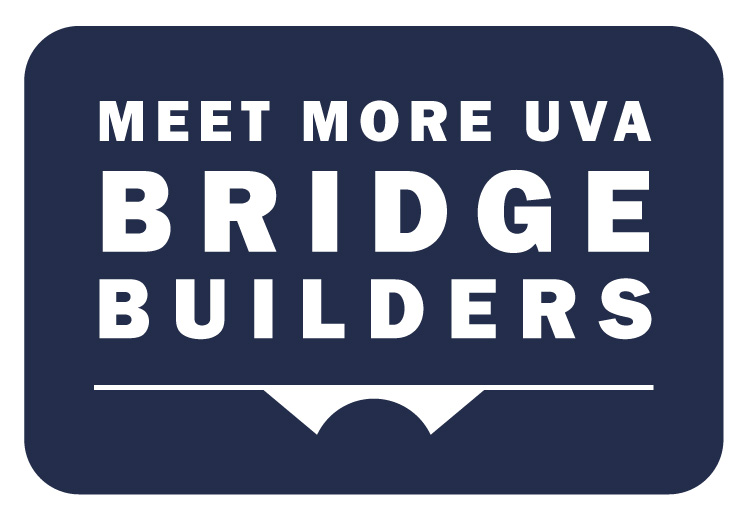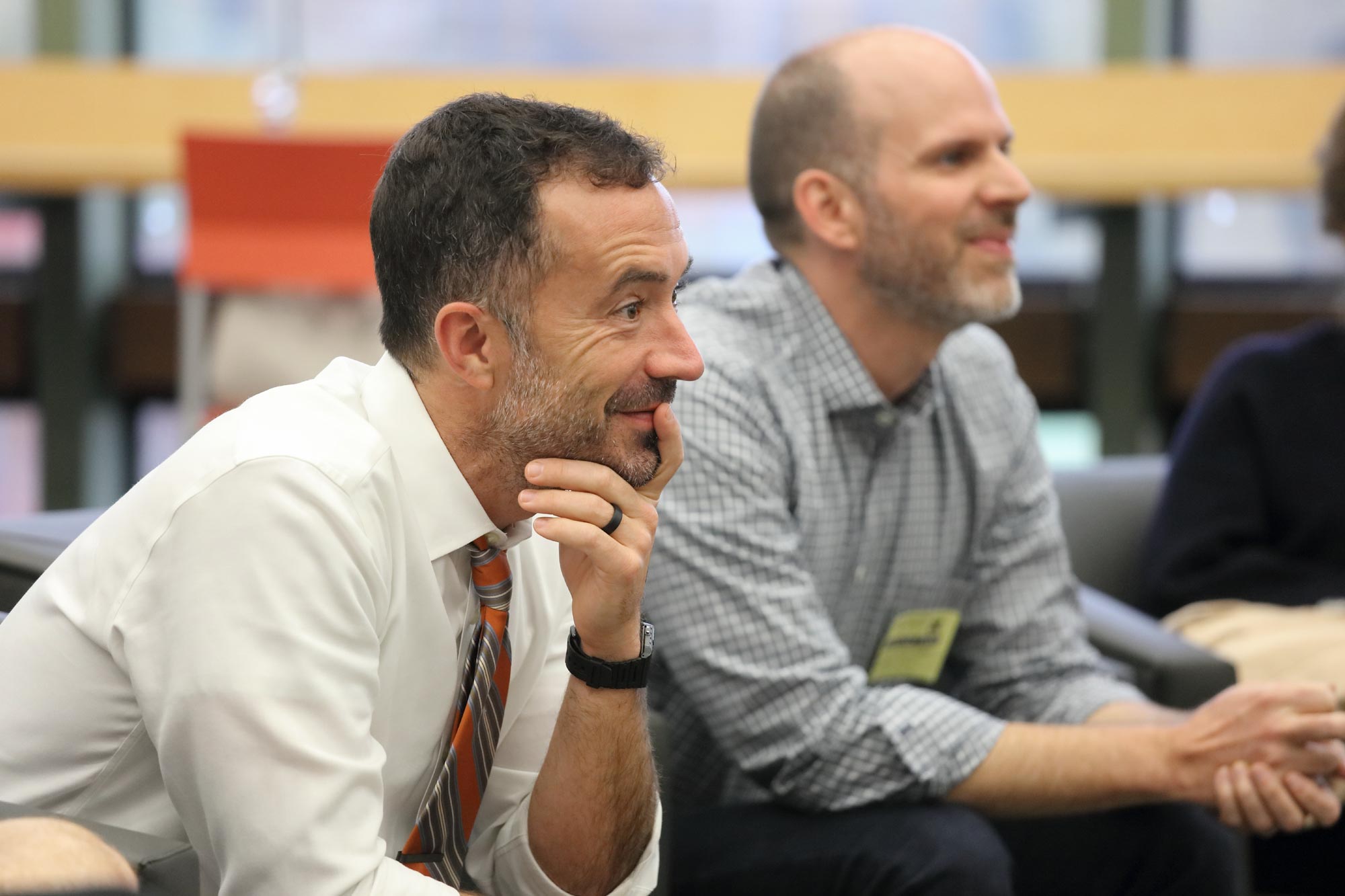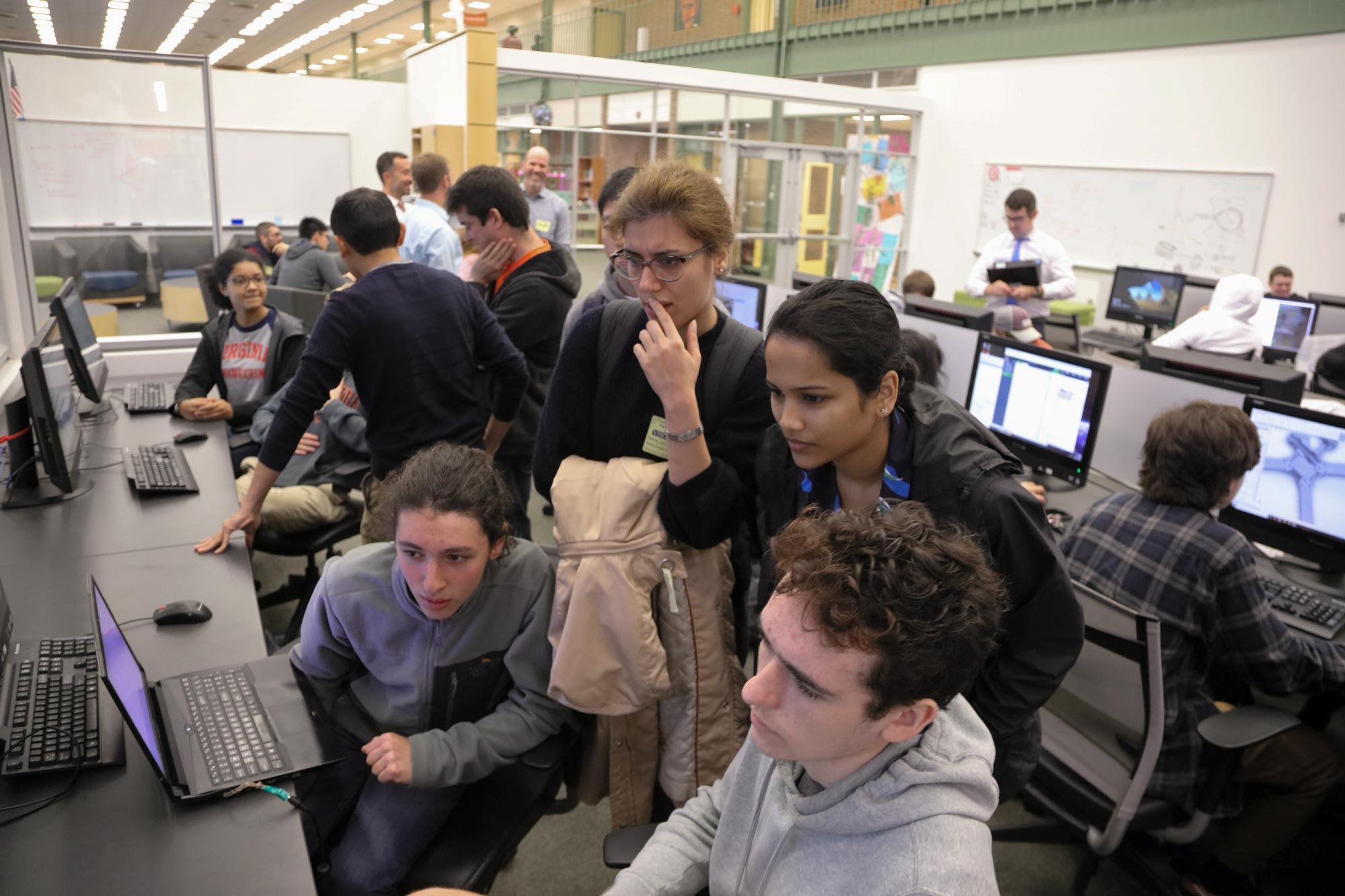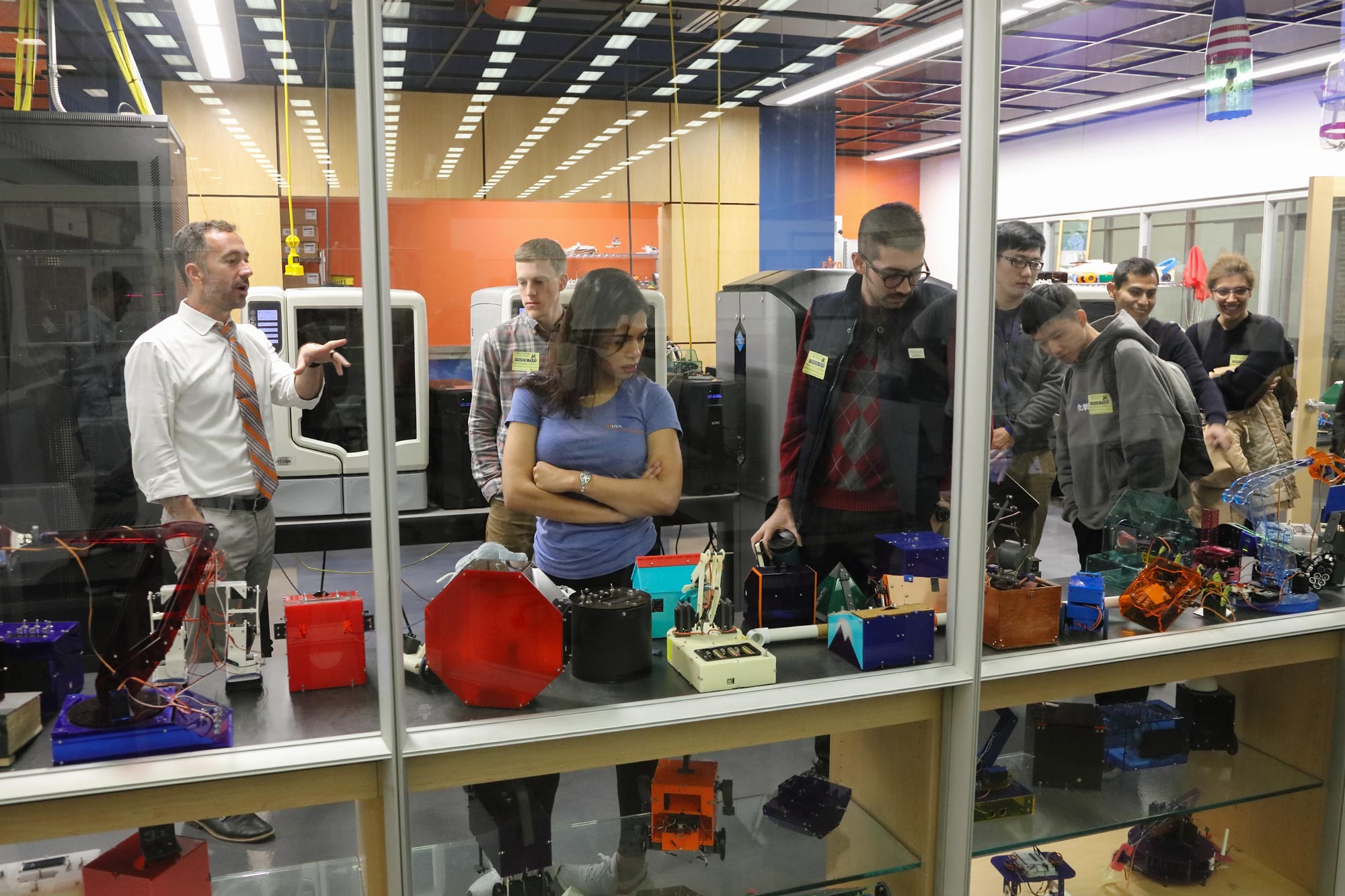In 2001, Jonathan L. Goodall earned a bachelor’s degree in civil engineering from the University of Virginia, graduating with the foundational belief that community collaborations lead to better engineering outcomes. While completing his Ph.D. in civil engineering at the University of Texas at Austin, then working as a professor at Duke University and the University of South Carolina, Goodall’s teaching emphasized the role community service plays in creating the best engineering solutions.

In 2013, Goodall’s career led him back to UVA Engineering, where he is a professor in the Department of Engineering Systems and Environment and associate director of UVA Engineering’s Link Lab for cyber-physical systems, with nearly 40 faculty members and more than 200 graduate students focused on research in the areas of autonomous systems, smart health and smart cities.
Goodall actively leads the Link Lab in smart cities research by being a good community partner. He stresses to his students the importance of working across traditional boundaries to serve society.
“UVA Engineering sees the value of service and views it as critical to education,” he said. “This is the only way to produce well-rounded graduates.”
Matthew Shields also graduated from UVA in 2001 after earning bachelor’s and master’s degrees in mechanical and aerospace engineering, then completing his multi-degree track at UVA with a Ph.D. in curriculum and instruction from UVA’s Curry School of Education (now the Curry School of Education and Human Development) in 2011. Like Goodall, he embarked on a career having been influenced by a university that places tremendous value on service to society.

CHS engineering teacher Matthew Shields and UVA professor Jonathan L. Goodall both graduated from UVA Engineering in 2001. Now they are bringing their students together to demonstrate the power of community in tackling challenging problems.
Shields turned his own UVA learning experience into an evolution in local schools. He created and now directs Charlottesville High School’s Sigma Lab and Engineering Program. The multi-year engineering curriculum culminates in a capstone class, where high school seniors create self-directed team projects designed to solve community problems.
“I tell my students that engineering is about making the world a better place,” he said. “I challenge them to think about an audience here or in the broader world, then design and build something that serves these groups.”
Although Goodall and Shields departed UVA on very different trajectories, they are united in a mission to educate future engineering leaders. Recently, they decided to demonstrate the power of community by bringing their high school and UVA students together for a problem-solving partnership.
Goodall suggested that the Link Lab’s graduate students mentor the Charlottesville High School capstone class seniors. Shields thought this was a particularly good idea because many of the students’ projects were cyber-physical systems, and they would need outside expertise to overcome hurdles in design and development.
“One of my main goals for the engineering program is to connect it to the real world. Collaborating with the Link Lab has provided that authenticity. My students see the connection between the work they are doing and research happening at the graduate level.”
- Matt Shields
Goodall proposed the idea to the Link Lab Student Committee on Culture and Livability, a graduate student organization focused on building community through inclusivity. Arash Tavakoli, a second-year Ph.D. student in civil engineering, and Luis Lopez Ruiz, a fifth-year Ph.D. student in electrical engineering, lead the organization.
Both thought mentoring would be right in line with the committee’s goals to create community conversations that lead to better research. They quickly moved to line up interested volunteers.
“Working with groups outside of those you would normally see leads to a fresh perspective, diversity in insights and better outcomes,” Tavakoli said.
Lopez Ruiz agreed. “Opportunities like this allow us to get out and develop friendships and build bridges of communication that lead to better collaborations overall.”
The teams met for the first time at the Sigma Lab in October. Shields stressed that his vision for the mentorship program extended beyond the technical aspects of engineering into learning how to collaborate. “What does it mean to be a real engineer?” he asked. “It means you solve problems and you work as a team.”
Goodall elaborated on the communal perspective. “What you are doing in this capstone class is a good fit for what Link Lab is doing,” he told the high school students. “We are doing cross-cutting research in cyber-physical systems. This is where the cyber and physical worlds come together, and these are the types of problems we are solving.”
The CHS capstone teams shared their projects and expected challenges. Projects were as diverse as a glove-operated drone, a hands-free musical instrument and an Android app that would allow the school’s gardening teacher to remotely water plants.
Link Lab graduate students offered ideas to help the capstone students overcome challenges. They also discussed methods for ongoing, real-time interaction and settled on using Slack, a cloud-based instant messaging system, for immediate communication between the Link Lab and Sigma Lab. Working together to implement the communication solution demonstrated the importance of teamwork in real-world scenarios.

The UVA Engineering Link Lab and Charlottesville High School Sigma Lab capstone class teams engaged in dynamic problem-solving, demonstrating the importance of collaboration in today’s engineering work environments.
Sanjana Mendu, a second-year master’s student in the Department of Engineering Systems and Environment, pointed out that today’s engineering careers require more than just book smarts.
“Working with other people is the most important skill to have when you enter the real work environment,” she said. “Being a good team player and leadership are characteristics that my adviser values and seeks to instill.”
Tavakoli shared insights with the high school students about the importance of collaborating across traditional boundaries in modern workplaces.
“For the type of cyber-physical systems research we are doing at the Link Lab, we are looking beyond the foundations to social disciplines like psychology,” he said. “We are becoming better engineers by reaching out to find the expertise we need to create solutions that are socially viable. These skills are necessary in the 21st century, so we want to demonstrate and share that process.”
The graduate students spent additional time touring the Sigma Lab and working in dynamic, problem-solving sessions.
The partnership between the Link Lab and the Sigma Lab will continue, including an open invitation for the capstone teams to visit the Link Lab.
“One of my main goals for the engineering program is to connect it to the real world. Collaborating with the Link Lab has provided that authenticity,” Shields said. “My students see the connection between the work they are doing and research happening at the graduate level. The Link Lab also provides a discerning audience as my students conduct research and document their work.”
The value of the mentorship goes both ways, according to the Link Lab graduate students. “The student committee believes it is so important to get out of your own space and interact,” Lopez Ruiz said.
“Working together in the same physical space is paramount to modern-day engineering,” Goodall said. “This partnership allows us to offer the capstone students additional research experiences that will be an important aspect of learning for these future engineers, educators and researchers.”
Media Contact
Article Information
January 28, 2020
/content/tale-two-labs-uva-engineers-collaborate-charlottesville-high-school-students

